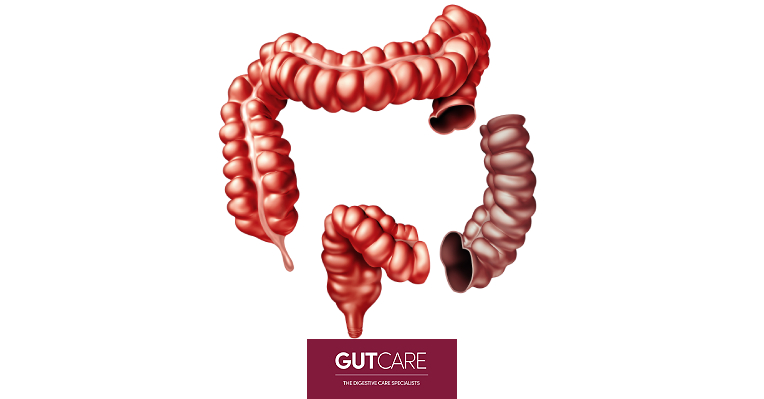Understanding Colectomy Procedures & Why They Are Conducted

Colectomy involves surgical resections of part or all of your colon, which is the end of your large intestine. It is typically conducted to prevent or treat various malignant or benign conditions, such as colorectal cancer, large polyps, inflammatory bowel disease, or diverticular disease.
There are several types of colectomy procedures that your gastroenterologist may recommend, depending on the severity of the issue.
- Proctocolectomy: This is the removal of both the rectum and colon
- Hemicolectomy: This is the removal of the left or right portion of the colon
- Partial colectomy: This is the removal of part of the colon, sometimes known as subtotal colectomy
- Total colectomy: This is the removal of the whole colon
Once colectomy is conducted, it usually also involves other surgical procedures to reattach whatever is left, allowing waste to leave your body properly.
Why is colectomy conducted?
Colectomy is typically conducted to prevent or treat various conditions and diseases that affect the colon, such as:
- Uncontrollable bleeding: Severe rectal bleeding may require colectomy to remove the affected part of the colon.
- Obstructed bowel: A blocked colon is considered an emergency and, depending on the severity, may require either a partial or total colectomy.
- Colorectal cancer: Initial stages of colorectal cancer, sometimes called colon cancer, may require partial colectomy. A total colectomy may be conducted if the cancer is at a later stage.
- Crohn’s disease: Removal of the affected portion may offer temporary relief from symptoms if medication is not helping. However, it is usually conducted when precancerous changes are detected. Having Crohn’s disease does not guarantee you get colorectal cancer, but it certainly increases the risk of developing colon cancer symptoms.
- Ulcerative colitis: If medication is not helping to control symptoms, proctocolectomy or total colectomy is conducted. It is also conducted when precancerous changes are detected. Ulcerative colitis leads to an increased risk of developing cancer of the bowel, rectum, or colon.
- Diverticulitis: Partial colectomy may be conducted to remove the affected part of the colon if you experience certain complications or your diverticulitis reoccurs.
- Preventive surgery: If you run a higher risk of developing colon cancer due to the development of several precancerous colon polyps, a total colectomy is recommended to prevent cancer. Additionally, individuals with inherited genetic conditions that have a greater risk of colon cancer, such as Lynch syndrome or adenomatous polyposis, are also recommended to undergo colectomy, should they want to.
How to prepare for colectomy?
Several days before the surgical procedure, your doctor may require you to:
- Stop taking specific medications
- Stop drinking and eating up to a day before the surgical procedure
- Take the prescribed laxative to empty your bowel thoroughly
- Consume prescribed antibiotics to suppress colon bacteria, preventing infections
What to expect during colectomy?
Your colectomy may be performed in two ways:
- Open colectomy: This involves making a long incision across your abdomen to reach your colon. During this, the surgeon will free your colon from surrounding tissues, performing either a partial or total colectomy.
- Laparoscopic colectomy: Also known as minimally invasive surgery (MIS), several tiny incisions are made across the abdomen – two incisions measuring from 0.5cm to 1cm to adjust the colon, and a larger incision from 3cm to 4cm to extract the removed portion. It is generally the preferred surgical method as the incisions are significantly smaller than open colectomy, allowing for faster recovery. However, it may not be viable in cases where the individual suffers from severe cardiorespiratory issues, if the individual has prior abdominal operations, or if the cancer tumour is too big.
For both surgical methods, you will be placed under general anaesthesia. Once the affected portion of the colon has been removed, the surgeon will reconnect the two ends so that your body can resume its normal waste removal. Depending on the type of colectomy procedure, some reconnecting options include:
- Connecting your intestine to an abdominal opening, allowing waste to be expelled to a bag
- Connecting your small intestine straight to your anus
- Reconnecting the remaining parts of your colon
What to expect after colectomy?
Depending on your situation and condition, you will have to be admitted to the hospital for up to a week or till you regain normal bowel function. During the recovery period, you may not be able to consume solids and will be given a liquid diet through your vein. If your colectomy involves an ileostomy or colostomy that requires you to have an ostomy bag to collect waste, an ostomy nurse will educate you on how to care for it.
Conclusion
Here at GUTCARE, we handle everything about your digestive health as well as various conditions and symptoms pertaining to it, such as pancreas cancer symptoms and fatty liver symptoms. It is vital to take charge of your gut health today. Conduct regular gastroenterology visits with us!
Click here to make an appointment with us today!
References:

HAVE AN ENQUIRY?
You may also send in an enquiry via our online form if you have questions pertaining to your visit or consultation.

FIND OUT MORE ABOUT OUR DOCTORS
Unsure of which doctor to speak to? Take a look at our doctors’ profile to find out more.




